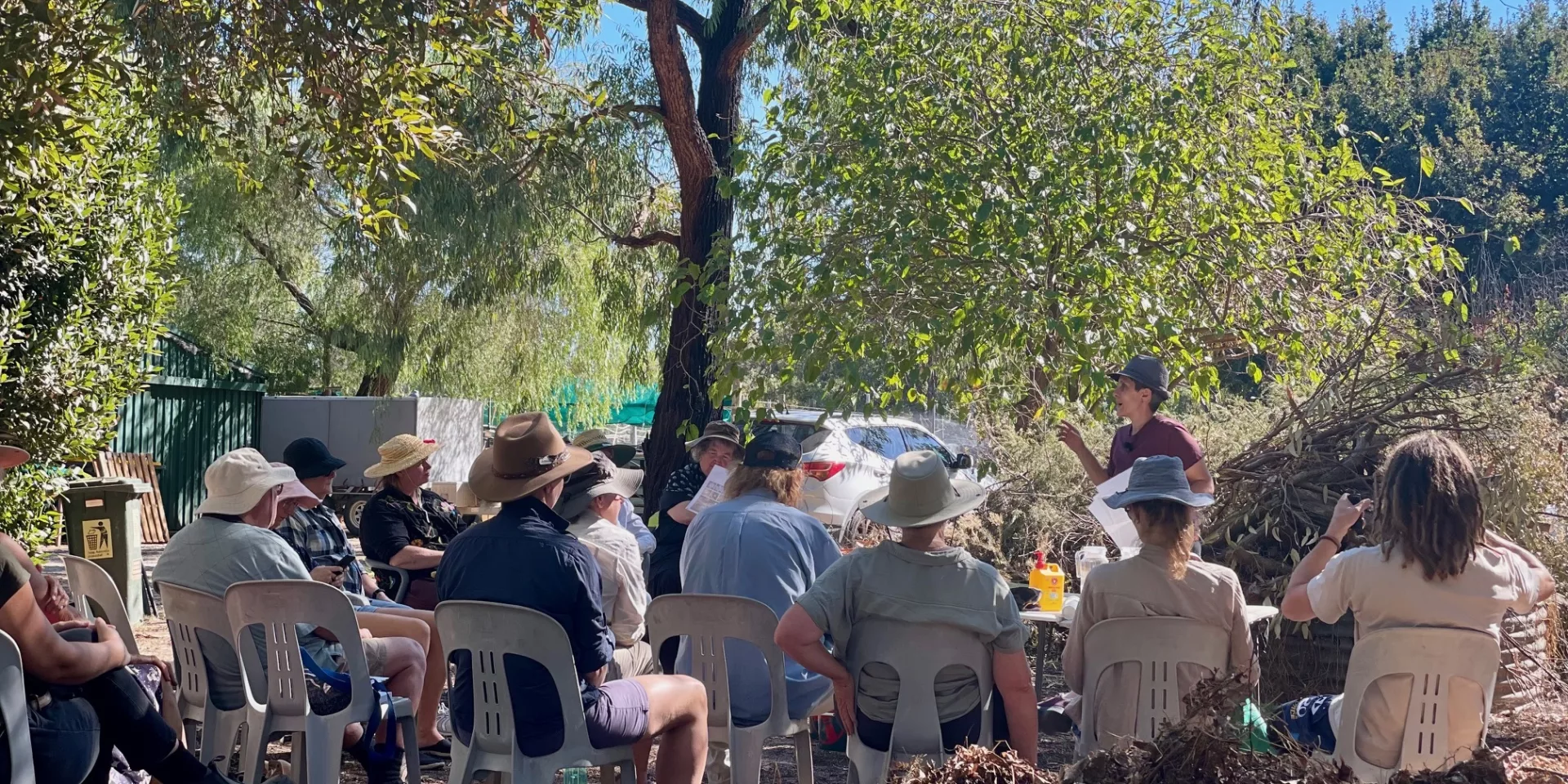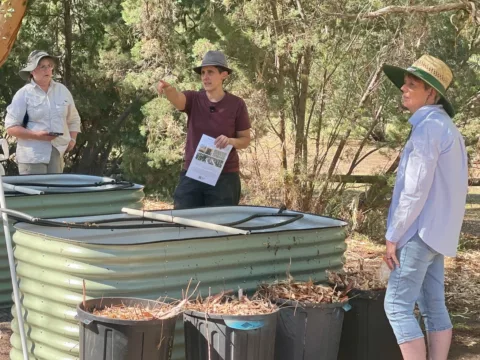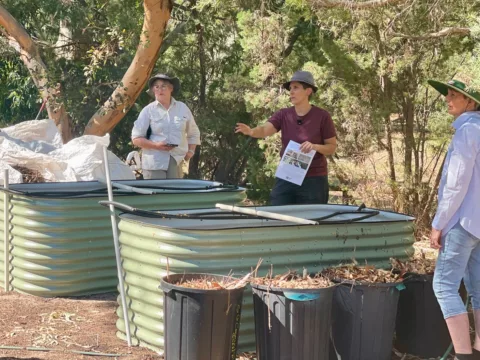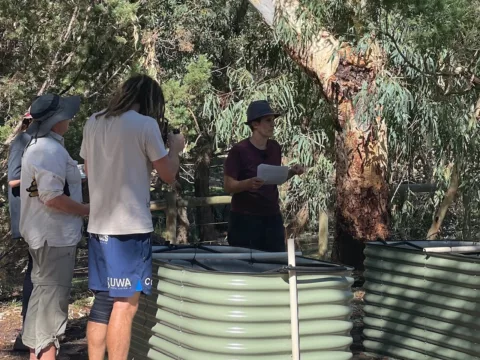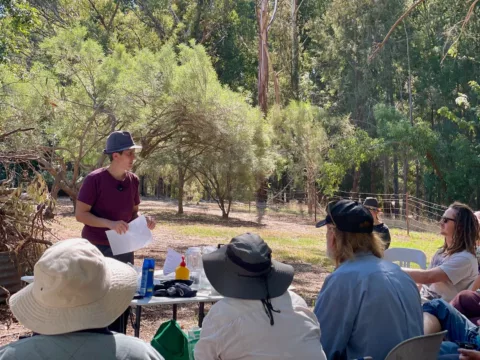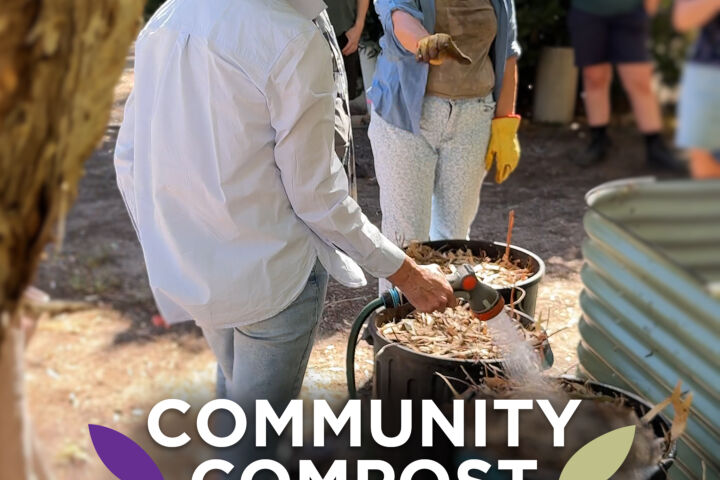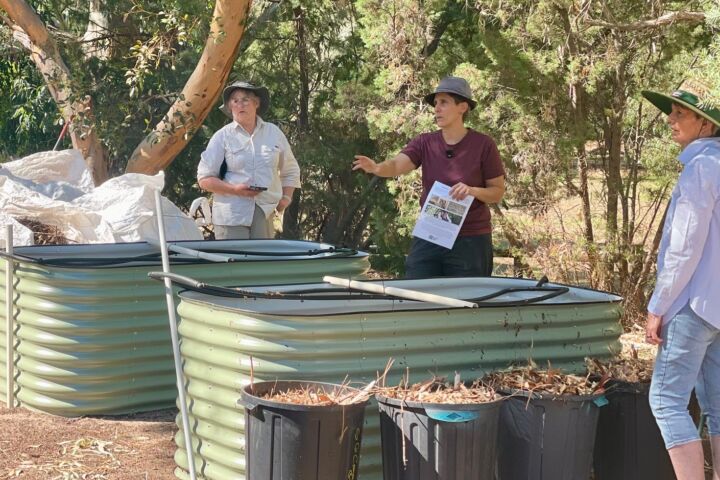A large group of 20 volunteers joined us to find out how to make worm compost - a low physical human input, nutrient dense, microbially rich compost which mimics nature. It requires no turning, only layering with a variety of organic ingredients.
This project was supported by funding from the Eastern Metropolitan Regional Council (EMRC) Community Grants Program.
During the two hour hands-on workshop we completed the set up of some worm compost beds to manage our organic garden and nursery waste. The workshop was the climax of weeks of hard work by volunteers to establish new worm composting systems. Composting projects at the community level can help develop and enhance social networks, community participation and awareness on local environmental issues.
Community Composting Project Purpose #
The main purpose of this project is to divert green waste from our community nursery away from landfill and into a cycle of re-use. Green waste that ends up in landfill produces methane, which is a harmful greenhouse gas that contributes to global warming.
Food loss and green waste generate an estimated 8-10 per cent of global greenhouse gas emissions while using land and water resources that increasingly put pressure on biodiversity.
Improper disposal of organic waste in open dumping or landfilling results in the generation of leachate high in BOD (biochemical oxygen demand), which pollute ground water, wetlands and rivers if not treated.
Composting, generally categorised as recycling, can be the most preferred technology option for organic waste management to reduce environmental impacts and move forward toward the creation of a sustainable society.
When organic waste is treated properly instead of dumped in landfill sites, fewer greenhouse gases are generated, and various environmental problems that result from improper disposal, such as odours, vermin, compromised water quality, fires and smoke, and pollution from vehicles transporting waste to landfill sites, can be alleviated.
Benefits of Composting #
Composting has two notable benefits: reducing negative environmental impacts from improper waste management and improving soil conditions. Compost feeds the soil and encourages microbes to grow. These microbes can sequester carbon in the soil through photosynthesis. Proper composting of organic waste can reduce dependence on chemical fertilizers, help recover soil fertility, and improve water retention and the delivery of nutrients to plants. Improving soil conditions also contributes to the realisation of sustainable and regenerative systems.
Community Composting Project Review #
With the assistance of Permaculture Consultant, Christel Mathelot of Wild Gaia Plants we identified that a Vermi-Compost (Worm Compost System) would provide the best results in a 3-6 month timeline with minimal volunteer staffing. The finished Vermi-Compost will then be used in the various display gardens on the Trillion Trees site. A liquid fertiliser may also be produced which can be trialled in restoration projects to improve growth and survival rates. Participants have learnt about worm composting for both natives and food plants, soil health and plant health whilst filling the compost beds.
The vermi-compost systems will now need to process waste for 3-6 months before the final compost product is ready for use.
For more information about volunteering on this community composting project and other areas please email hidden; JavaScript is required.

